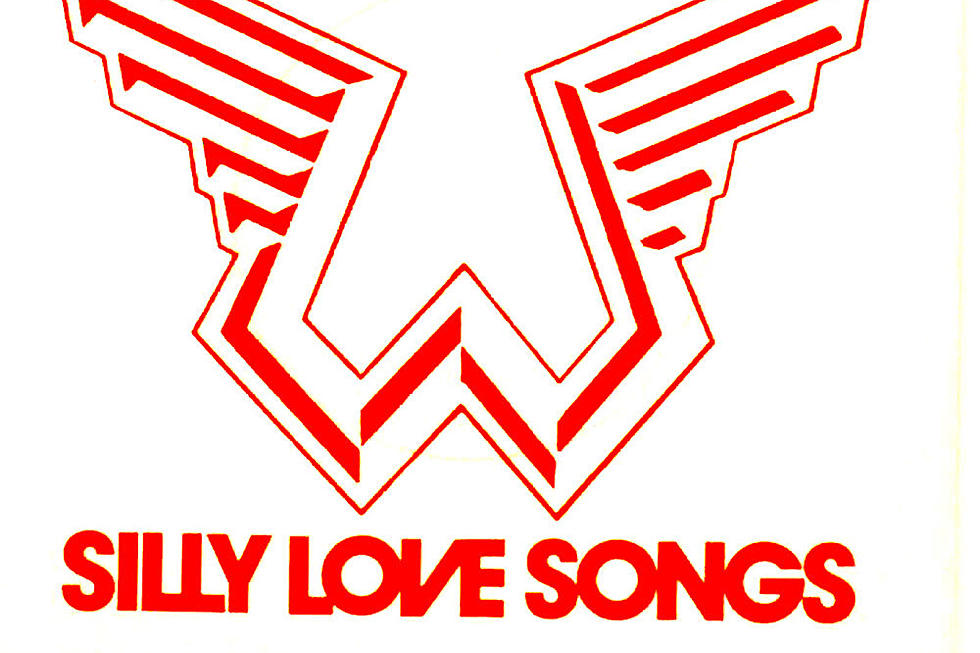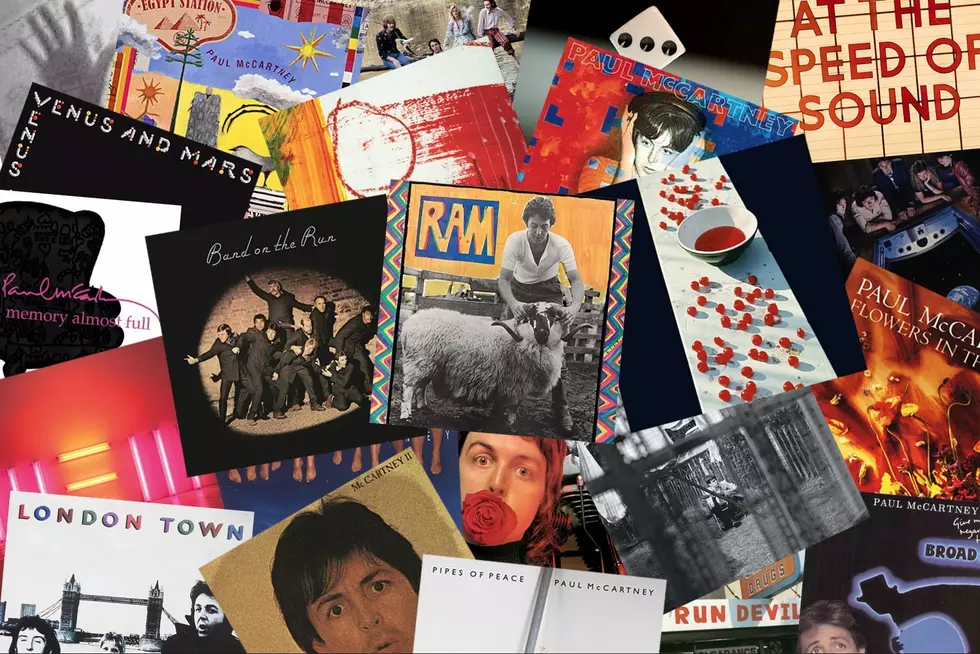
45 Years Ago: Paul McCartney Takes the Ultimate Silly Love Song to No. 1
Paul McCartney has written a lot of love songs.
Those include perfect, heartfelt gems with the Beatles (“Michelle,” “Eight Days a Week” and “The Long and Winding Road,” among others) and smashing singles with Wings and as a solo artist (“My Love,” “Maybe I’m Amazed,” “No More Lonely Nights”).
McCartney has also written a ton of silly songs like “Yellow Submarine,” “Maxwell’s Silver Hammer,” “Ob-La-Di, Ob-La-Da,” too. But with “Silly Love Songs,” released as a single in March 1976, he crushed the silly and sublime together. McCartney was rewarded with the biggest charting song of the year.
Along the way, he's taken plenty of flack for this unabashed affection for the romantic tunes. McCartney never directly responded to his critics, he never called them out by name, but he clearly looked to prove a point with “Silly Love Songs.”
Many safely assume that the song not only punched back at rock writers in the most poppy way possible, but acted as a reply to John Lennon, as well.
Of course, the McCartney-Lennon partnership began with both of them minting gold with silly love songs. Some of the pair’s first co-writes, like “I Want to Hold Your Hand,” were both juvenile and infinitely catchy. But as the band’s sound evolved, each songwriter began to go their own way. Lennon leaned toward rough, raw, strange songs. McCartney proved to be the world’s master pop craftsman.
Watch Paul McCartney's Video for 'Silly Love Songs' Live
Their solo careers only emphasized this split. Sure, both could write hooky tunes and experimental stuff. The tuneful pop of “Imagine” really isn’t that far from McCartney’s aesthetic; the weird, rugged “3 Legs” from Ram has a very Lennon feel. Still, McCartney dominated mainstream in arenas and on the charts, while Lennon gravitated to the role of iconoclastic hero.
They ended up fighting openly over these perceived roles. Lennon knocked McCartney’s solo debut as “rubbish” and “light and easy.” One Beatle biography quoted Lennon calling the LP “Engelbert Humperdinck music,” linking his old band mate with the easy-listening king.
McCartney used at least one track on Ram to take some swipes as Lennon. Then Lennon shot back with solo track “How Do You Sleep?,” which included, among other jabs, this line: “The only thing you done was yesterday / And since you've gone you're just another day.”
By the mid-’70s and the release of “Silly Love Songs,” McCartney had become the bigger solo artist. He’d also worked hard to make Wings a real band, rather than simply a vehicle for his solo work. At the Speed of Sound, the album that featured “Silly Love Songs,” gave his bandmates room to step into the spotlight as lead singers and songwriters.
Wings was on the road for his first U.S. tour since the Beatles' final trek in 1966 when At the Speed of Sound was released, and the platinum-selling LP jumped to No. 1. By then, “Silly Love Songs” had already knocked “Boogie Fever” out of the top spot on May 22, 1976, beginning a run of five non-consecutive weeks at the top.
Watch Wings Perform 'Silly Love Songs' Live
At this point, the disco craze in full swing, as Johnnie Taylor's "Disco Lady," the Bee Gees' "You Should Be Dancing" and other dance floor jams dominated the charts. Diana Ross’ “Love Hangover” bounced “Silly Love Songs” out of the top slot on May 29 but Wings’ tune wouldn’t be denied, returning to the No. 1 spot the following week. It would go on to be the biggest charting tune of the year.
Wings seemed to be tipping their collective hats to this latest musical trend, adding a jaunty bassline and those sugary strings, but "Silly Love Songs" still comes off as pure McCartney. What appears to be unbelievably fluffy actually features intricate and nuanced vocal harmonies, groovy horns, and that super-cool bass part. It’s classic Paul: honest, earnest, showtune-y, endlessly melodic, with a signature blend of musical sophistication and mainstream appeal.
This song also isn’t coy about its mission statement. McCartney sings it clearly: “You’d think that people would’ve had enough of silly love songs / But I look around me, and I see it isn’t so. Some people want to fill the world with silly love songs / And what’s wrong with that?”
As far as McCartney was concerned? Nothing.
“Over the years people have said, ‘Aw, he sings love songs, he writes love songs, he's so soppy at times,’” he told Billboard in 2009. “I thought, Well, I know what they mean, but people have been doing love songs forever. I like 'em, other people like 'em, and there's a lot of people I love. I'm lucky enough to have that in my life. So the idea was that ‘you may call them silly, but what's wrong with that?
“The song was, in a way, to answer people who just accuse me of being soppy,” he added. “The nice payoff now is that a lot of the people I meet who are at the age where they've just got a couple of kids and have grown up a bit, settling down, they'll say to me, ‘I thought you were really soppy for years, but I get it now! I see what you were doing!’”
Beatles Solo Albums Ranked
See the Beatles in Rock’s Craziest Conspiracy Theories
More From 101.9 KING-FM





![[LIST] Have You Heard These 16 Songs That Name-Drop Cheyenne?](http://townsquare.media/site/98/files/2023/09/attachment-Cheyenne-music.jpg?w=980&q=75)


